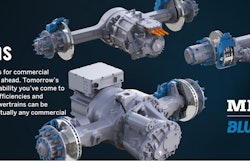Every once an awhile you need to take a review of the current market, and especially so during these turbulent times in our economy.
I believe the trucking market has started to solidify and give some stability to its portion of the supply chain. First, the industry is doing its best to keep capacity in the market and to serve customer needs at a much higher maintenance cost for older vehicles. Fleets have been inundated with price increases on all new pending deliveries for new equipment, and those costs have not shown up in the market yet. And many of these contract carriers are doing all the above with the lure to sell this same equipment for an outrageous amount of money. All-in-all the industry – as fragmented as it is – consistently answers the bell by keeping equipment capacity high.
Let’s talk about the supply chain.
A subject hot on everyone’s minds these days is the purported impending doom of trucking and crashing freight rates. Often cited as worrisome is a low tender rejection rate. Some report that as a leading indicator of a freight recession, however, I view that as motor carriers finally getting contract rates at a level that they can accept tenders as a primary carrier. This also would indicate that with all the discussion around supply chain problems, it would seem that the trucking part of the supply chain is working quite well, and really get no credit in the public press.
The other part of capacity availability is the driver. Contrary to what you might read elsewhere, I believe there still is a driver shortage and there are herculean efforts being made by this industry to change. Carriers have invested millions of dollars into training and actually teaching drivers to become safe professional truck drivers.
Compensation for drivers is up 18% to 25% from pre-pandemic levels. That has added to the interest but the job is still very hard and usually demanding on family life, so the retention rate for these new drivers is a challenge. These additional costs and training are not cheap and will continue be a part of the trucking industry until the autonomous vehicle is a reality... many years from now.
Finally is the freight rate saga. When shippers read news of a looming trucking bloodbath they start employing price-cutting tactics. I get it. However, while considering the impending and current costs facing the industry it seems to me that the shipper has gotten a deal over the past two years. The past 24 months have seen spot rates skyrocket, pulling more small carriers into that market. They killed it in revenue and worked less time on the road.
Then the perfect storm: fuel rises, used equipment purchases have elevated weekly outlays and fleets have to work more. The spot market does what any market would do when the supply goes up. When demand started moving away from higher spot to equalized contracts, spot capacity was left in shambles – and going to get worse. However, that spot market has been a bubble for the past 2 years. Now it's bursting. The capacity situation does not apply to the contract market. Supply of capacity is staying at replacement numbers; the demand is steady and probably will rise if a few macro-economic conditions improve.
The moral of the story is that the contract carriers have fulfilled their responsibility to keeping a solid supply chain viable. They have controlled their costs and absorbed many of those costs to stay within an agreeable price increase range for their core shippers. They have modulated their pricing while battling these historically high costs.
Now is not the time to be grinding rates, because if it's successful marginal carriers may just close their doors and sell equipment in a very favorable market. They don’t have to address the personnel challenges and can cancel their expensive new equipment. If all that happens, this industry should be highlighted in the mainstream press because it will impact the supply chain.
Jack Porter is chief executive of GPorter Group, a management consulting company that specializes in transportation.










